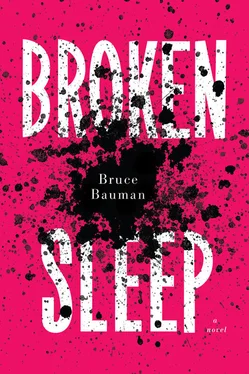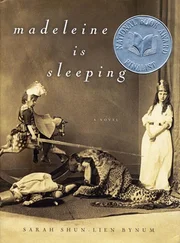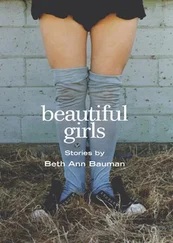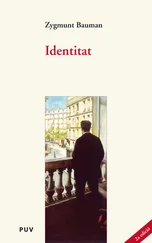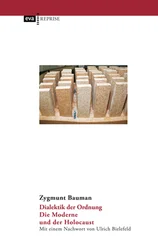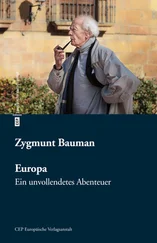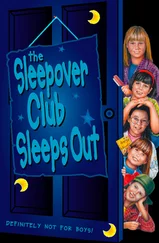Hey, careful there, pretty boy ,
Let’s sturm und drang
Up the good brew
And take on the entire crew .
But don’t putsch me too far
’Cause when hugs turn to shoves
I’ll be making war and love
With my gun an’ guitar
She left without a good night kiss
Staring at the human abyss
I’m searching for the last note
Of god’s silent song
To carry me along
Carry me, carry me, carry me, please carry me …
The room pulsated with a man-on-a-high-wire tension. Alchemy closed his eyes and bowed his head, and almost everyone found themselves in their land of private laments and regrets, with the echoes of Alchemy’s voice to carry them along. A drunken guy yelled “Chicks and Money!” and another chimed in “I Wanna Be Seen!” breaking the spell. Alchemy unclipped his guitar strap. In seconds, a gaggle of women, young and old, surrounded him. Trudy tapped Moses on the shoulder. “Let’s go.” He arched his eyebrows quizzically. “I’m tired and he’s gone for the night.”
“You’re cool with that?”
“Have to be. He’s Alchemy.”
In the morning, more than a little concerned about Jay and why he hadn’t heard from her, Moses called and woke her up at 7 A.M.
“Hey, where were you?” Moses heard his voice dart out with a mix of accusation and fear.
“At the gym. A late Pilates class. I didn’t want to call you last night in case you were asleep.”
“My mom said you are distraught.”
“Distraught? What should I be, a happy idiot?” Now Jay’s tone was accusatory, petulant.
“No, I’m not saying that. But there’s some hope now.”
“I’m sorry. I’m just anxious. I’m so glad you’re coming home.”
“Me, too.” To lower the tension, and keep up some pretense of normalcy, Moses asked about Jay’s meeting with her latest demanding client. They made more small talk and Moses promised to call her later.
Alchemy strolled by alone while Trudy and Moses were having breakfast at the Flatiron Café. Trudy teased him with lighthearted jests unique to those who have had a long friendship punctuated by casual sex. “Did you play Romper Room teacher with the leetle girls?”
“You could say that. Gave them some, um, breathing lessons. I advised them to take your Tantric yoga class so they can learn new positions from the expert.”
“Thank you,” she said sarcastically, “but that class is full. No beginners.”
“I wouldn’t call them beginners. Not anymore.”
Trudy placed her palms together in front of heart and closed her eyes deferentially, “Namaste, my master.”
Alchemy placed his palms together in front of his heart and bowed his head slightly. “No mistakes, dear guru.”
Their game over, Alchemy asked Trudy to take some photos of him and Moses side by side, which she did. “Unless I call, please don’t release them. And then only one mag, People would be my first choice. I want Mose here to have his privacy until he decides otherwise.”
Moses took the wheel for the first few hours, while Alchemy napped. When they stopped, Alchemy called Sue Warfield; his hunched shoulders and low-toned voice made it clear he didn’t want Moses to hear this conversation. Moses bought the supplies this time.
Alchemy drove the last four hours while they listened to the radio and spoke about Moses’s illness. The conversation lacked any mention of moms, dads, band members, women friends, or potential nervous breakdowns. At first Alchemy’s distant, almost detached manner discomfited Moses. In time, he realized there were many Alchemys, and that trying to comprehend or predict his behavior was probably best left to astrologists or cultural prognosticators.
As the Focus cruised along the I10, the brothers contemplated their own theories regarding the psychic rumblings of what was then the middle ground of American society: a seemingly pleasant world held aloft by the repressive rules of black and white, right and wrong, and where all questions have answers, no matter whether the physical plane was a canvas of sorrowful grays and unending rows of stolid, protective redbrick apartment buildings, developments of dingy doublewides, or shiny new tract homes in brown deserts.
At a fairly young age, Alchemy had determined that those rules and those tired or monumental edifices contained the foul dust of the American dream. Under the surface seethed resentment and paranoia — sentiments that alternately exploded and imploded in a needful catharsis every few generations, often in wars in far-off countries — and at that moment, unbeknownst to either Alchemy or Moses, was about to explode again. But even before a new screaming comes across the sky, both had their own explanations for the complexities of their America. Moses sensed the unseen viruses that contaminated the collective soul. Yes, he had specific ideas on how to remedy the virus, from passing a one hundred percent inheritance tax to doing away with private education and eliminating the electoral college. What he believed America needed most was a constitutional convention.
Moses didn’t have faith in himself to change much of anything. And now, with his illness, he yearned only for the cocoon of his home with Jay.
Alchemy, too, felt his country had gone astray, and would, if he had known them, agreed with Moses’s propositions. Alchemy didn’t think in terms of political policy bullet points. He believed America was destined to plod recklessly into the future before it eventually imploded upon itself, unless someone with grander foresight and vision came along to change the course of history. And he had a pretty keen sense of who that person could be.
The bicentennial sissy boom-bah God Bless America blitzkrieg and the anti-rah-rah blather of the downtown scene made me almost want to be … French. I ingested some mesc on the 4th and traipsed to the river. With the fireworks exploding inside and outside my body, I envisioned what I’d create for my mid-September show.
All summer I hid in my studio in Orient as if a two-millennia-old and long-searching dybbuk had ascended. I painted bright and dark landscapy abstract visions of the dying bucolic, pristine landscape of farms and marshland of Orient — brilliant greens, autumnal golds, scorching summer whites, and winter Savant Blue. Yes, there is a color bearing my name. Two colors, in fact. The work was more emotionally tactile, sensual, and visually subtle than anything I’d done before. I titled the show Flowers, Feminism, and Fornication . Only Xtine had been privy to my studio until Gibbon came by from his Hamptons home. He erupted into a hissy stomp, “This isn’t Salome Savant art!” Like I would ever listen to him.
“Taunt piss, Murray,” I answered.
Of course, money trumped misgivings, so Gibbon promoted it in the Hamptons over Labor Day weekend. I went to the city to generate noise for the show. New York in the mid-’70s was still fun, in a deranged sort of way.
The city was undergoing one of its periodic skin sheddings. The Fillmore closed and the hippies fled, taking their colors with them. Downtown dissolved from an LSD light show to a heroin-cocaine black-and-white muck, a studied, cool sepia wash. Lost was the mix of hedonism and purpose, and the hipguard became a superficial veneer of seriousness covering too many grabby, frivolous poseurs. My city shrank down to the area below 14th Street, while the rest went from excessive to anorexic before the next “rebirth” in the early ’80s, when it became obese and bloated once again. Except for the AIDS ghettos. Those sections of the city smelled emaciated, like dried bones, and looked like the washed-out browns of old leather pants. It happened again after 9/11, when the city’s hungry ghost arose from the crater in search of its soul.
Читать дальше
